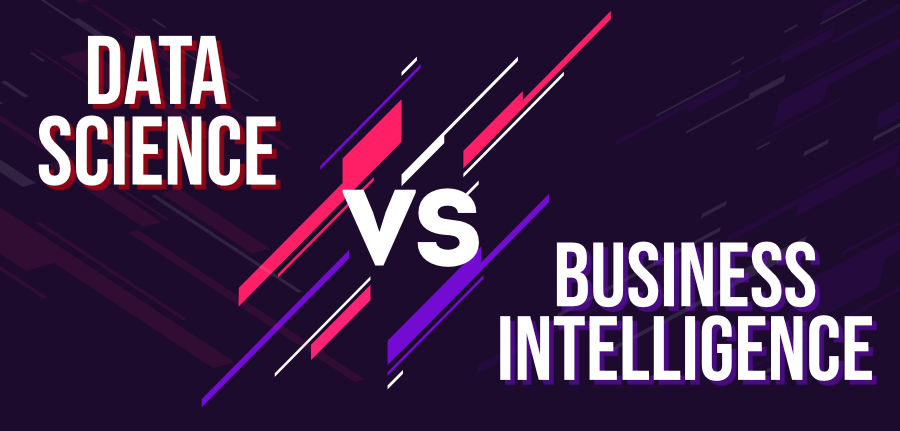数据科学:
数据科学基本上是一个通过使用各种科学方法、算法和过程从数据中提取信息和知识的领域。因此,它可以被定义为各种数学工具、算法、统计和机器学习技术的组合,从而用于从数据中找到有助于决策过程的隐藏模式和见解。数据科学处理结构化和非结构化数据。它与数据挖掘和大数据都有关。数据科学涉及研究历史趋势,从而利用其结论重新定义当前趋势并预测未来趋势。
商业智能:
商业智能(BI)基本上是企业用于业务数据分析的一组技术、应用程序和流程。它基本上用于将原始数据转换为有意义的信息,从而用于业务决策和盈利行动。它处理结构化和有时非结构化数据的分析,为新的和有利可图的商业机会铺平道路。它支持基于事实的决策而不是基于假设的决策。因此,它对企业的业务决策具有直接影响。商业智能工具可提高企业进入新市场的机会,并有助于研究营销活动的影响。

下表列出了数据科学和商业智能之间的差异:
| Factor | Data Science | Business Intelligence |
|---|---|---|
| Concept | It is a field that uses mathematics, statistics and various other tools to discover the hidden patterns in the data. | It is basically a set of technologies, applications and processes that are used by the enterprises for business data analysis. |
| Focus | It focuses on the future. | It focuses the past and present. |
| Data | It deals with both structured as well as unstructured data. | It mainly deals only with structured data. |
| Flexibility | Data science is much more flexible as data sources can be added as per requirement. | It is less flexible as in case of business intelligence data sources need to be pre-planned. |
| Method | It makes the use of scientific method. | It makes the use of analytic method. |
| Complexity | It has a higher complexity in comparison to business intelligence. | It is much simpler when compared to data science. |
| Expertise | It’s expertise is data scientist. | It’s expertise is business user. |
| Questions | It deals with the questions what will happen and what if. | It deals with the question what happened. |
| Tools | It’s tools are SAS, BigML, MATLAB, Excel etc. | It’s tools are InsightSquared Sales Analytics, Klipfolio, ThoughtSpot, Cyfe, TIBCO Spotfire etc. |